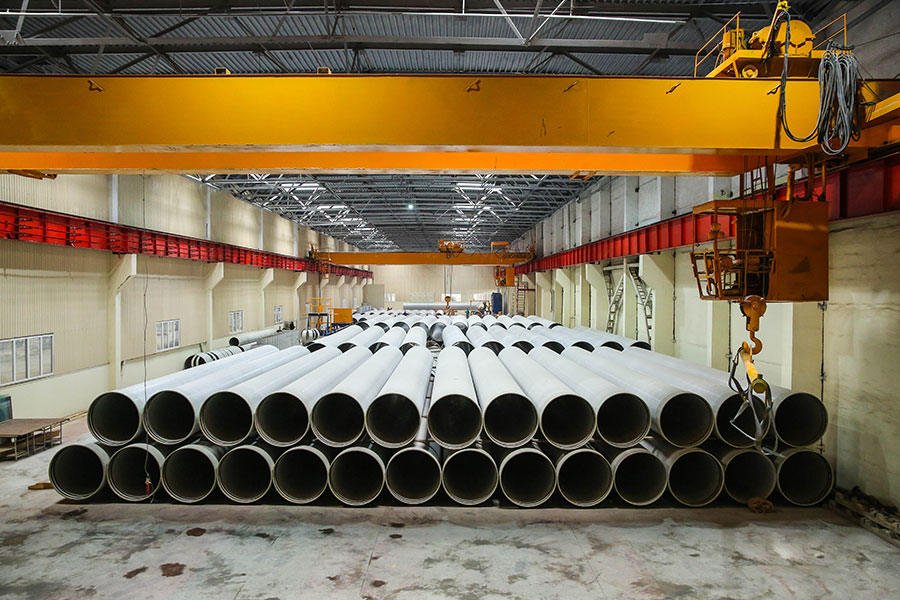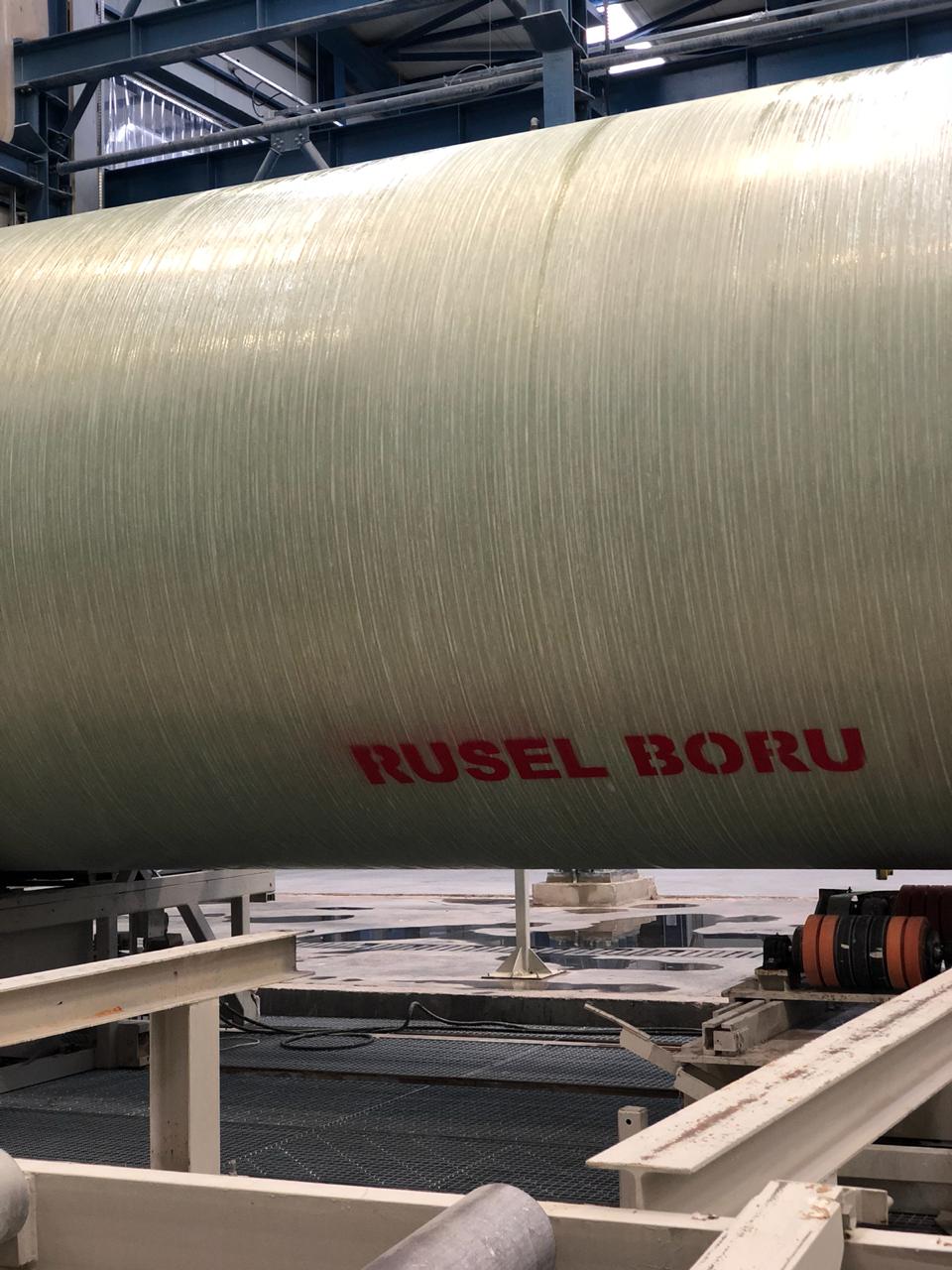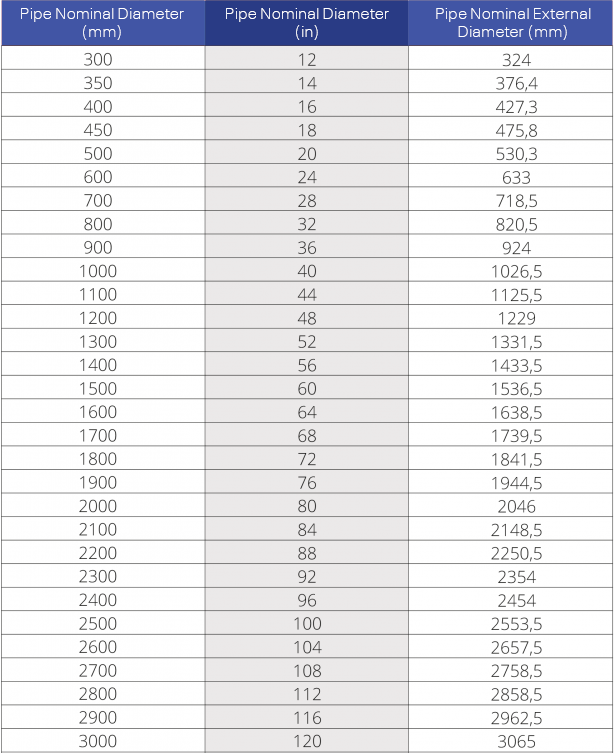Can be used in:
- Sewer lines
- Industrial wastewater lines
- Potable water transportation lines
- Clean water transportation lines
- Network lines for irrigation
- Subsea piping
- Water intake and discharge lines and diffusers
- Circulation lines of power plants
- Drainage lines
- Rainwater lines
- Diameters: Our products are available in the range of DN300 mm to DN3000 mm.
- Pipe length: Standard length is 12 m, but our GRP pipes can be manufactured with the lengths required, only limited by transportation capabilities.
- Physical properties: Comprising of thermosetting resin and silica sand reinforced with glass fiber, a GRP pipe is a composite materil that has flexible characteristics.

GRP Pipes : Standards
- EN 1796 (water supply)
- EN 14364 (wastewater applications)
- ASTM D3262 (wastewater applications)
- ASTM D3754 (wastewater applications)
- AS 3571.1 (wastewater applications)
- ASTM D3517 (water supply)
- ASTM D 3839 (installation)
- ISO 10465 (installation)
- ISO 10639 (clean water applications)
- ISO 10467 (wastewater applications)
- AWWA C 950 (water supply)
- AS 3571.2 (water supply)
- AWWA M45 (design and installation)
- AS 3571.1 (wastewater applications)
- AS 3571.2 (clean water applications)
- AS7NZS 2566.2 (installation)
GRP Pipes : Benefits
- Long Service Life (up to 50 years)
- Perfect and smooth inner surface
- Resistance against corrosion and chemicals
- Lightweight
- Safe connections
GRP Pipes : Advantages
- Light and flexible
- Easy to assemble and join
- With a density of min 0,935 gr/cm³, it is approximately 8 times lighter than steel
- Not easily affected by underground movements due to its elastic structure
- Does not crystallize and continues to retain its elastic properties even when the temperature drops to -40°C
- Due to its flexible nature, pipes can turn 20 to 35 times the radius of the pipe diameter, whereby the use of elbows is diminished
- They are resistant to shocks and impacts; crack propagation resistance is high
- Long operational life. Given fluid temperature of 20°C within the pipe, a minimum of 100 years of operational life is expected. With non-thermal water sources of 7°C - 12°C, a minimum of 100 years of operational life is expected
- Resistant to chemicals and frost
- Low friction loss
- High resistance against sunlight
- Polyethylene is a thermoplastic product which can be recycled
- Does not release gas when on fire (an advantage over PVC pipes)
- Higher flaming temperature (an adventage over PVC pipes)
- No need for wide trenches while laying underground


